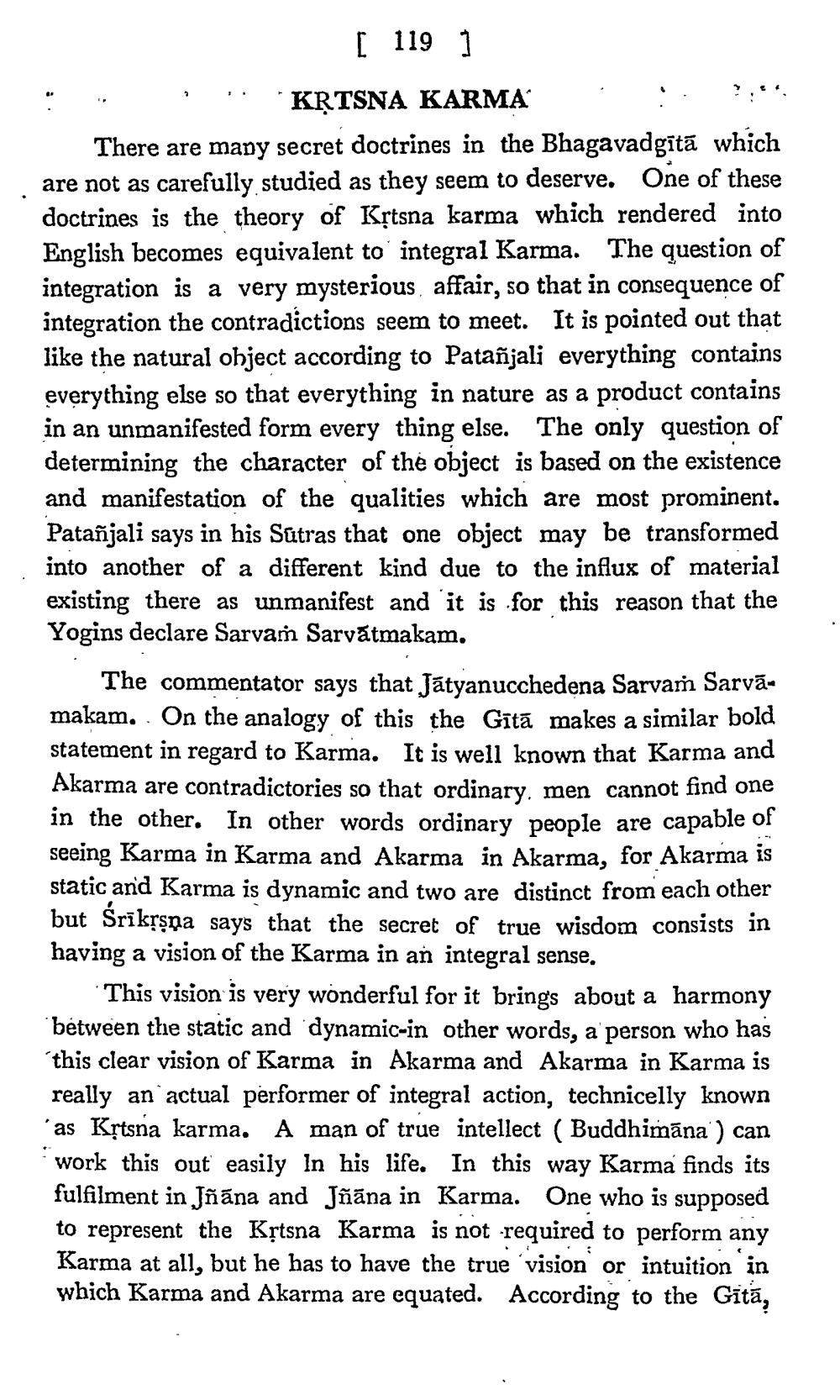________________
[ 119 ) . . . . "KRTSNA KARMA . .. ?,',
There are many secret doctrines in the Bhagavadgitā which are not as carefully studied as they seem to deserve. One of these doctrines is the theory of Kștsna karma which rendered into English becomes equivalent to integral Karma. The question of integration is a very mysterious affair, so that in consequence of integration the contradictions seem to meet. It is pointed out that like the natural ohject according to Patañjali everything contains everything else so that everything in nature as a product contains in an unmanifested form every thing else. The only question of determining the character of the object is based on the existence and manifestation of the qualities which are most prominent. Patañjali says in his Sutras that one object may be transformed into another of a different kind due to the influx of material existing there as unmanifest and it is for this reason that the Yogins declare Sarvam Sarvatmakam.
The commentator says that Játyanucchedena Sarvam Sarvā. makam. . On the analogy of this the Gītā makes a similar bold statement in regard to Karma. It is well known that Karma and Akarma are contradictories so that ordinary, men cannot find one in the other. In other words ordinary people are capable of seeing Karma in Karma and Akarma in Akarma, for Akarma is static and Karma is dynamic and two are distinct from each other but Śrīksspa says that the secret of true wisdom consists in having a vision of the Karma in an integral sense.
This vision is very wonderful for it brings about a harmony between the static and dynamic-in other words, a person who has this clear vision of Karma in Akarma and Akarma in Karma is really an actual performer of integral action, technicelly known 'as Kștsna karma. A man of true intellect ( Buddhimāna') can work this out easily in his life. In this way Karma finds its fulfilment in Jñāna and Jñāna in Karma. One who is supposed to represent the Kệtsna Karma is not required to perform any Karma at all, but he has to have the true vision or intuition in which Karma and Akarma are equated. According to the Gitá,




